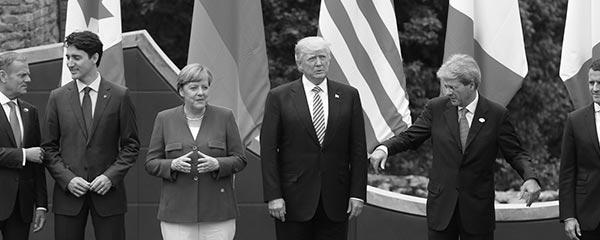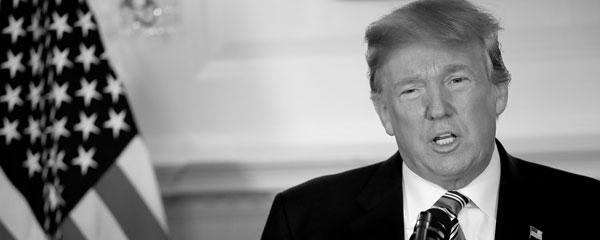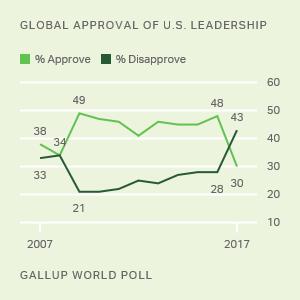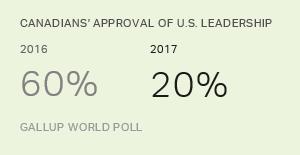Story Highlights
- 25% of Australians approve of Chinese leadership, 23% of U.S. leadership
- In New Zealand, 30% approve of Chinese leadership, 19% of U.S. leadership
WASHINGTON, D.C. -- Many eyes will be on the G-20 summit meeting this weekend between a prospective rising power and one viewed by some as a power in retreat. Neither U.S. President Donald Trump's partial withdrawal from the world stage nor Chinese President Xi Jinping's attempts to expand China's influence around the globe have earned them any fans among two close partners in the Asia-Pacific region, Australia and New Zealand.
As elsewhere around the globe, approval of U.S. leadership in New Zealand and Australia fell precipitously during Trump's first year in office. The situation in his second year is not much improved: 23% of Australians and 19% of New Zealanders approve of U.S. leadership. In both countries, ratings of China's leadership are similar to, if not slightly higher than, that of the U.S.
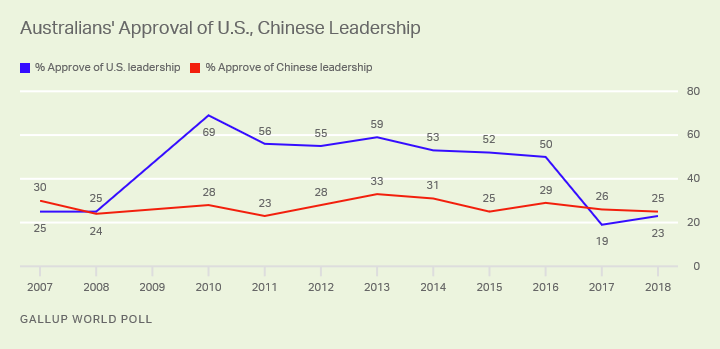
Australians' approval ratings of U.S. and Chinese leadership followed a similar track in the last two years of George W. Bush's presidency. However, approval spiked during Barack Obama's presidency, when no less than 50% of Australians approved of U.S. leadership, while their approval ratings of China's leadership rose no higher than 33%. In 2017, Australians' approval of U.S. leadership dropped below their approval of China's. The two levels are similar in 2018.
New Zealanders' approval of Chinese and U.S. leadership has followed a similar pattern. Slight differences in approval during Bush's presidency grew to a substantial divide under Obama. Approval of U.S. leadership sank to roughly similar levels as those seen in Australia after Trump's election, while approval of China's leadership has remained stable and higher.
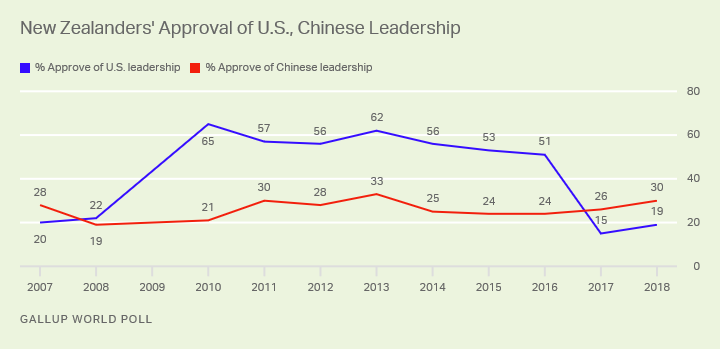
Views of Chinese Leadership in Australia and New Zealand
Every year since 2007, more Australians have disapproved than approved of China's leadership. Since 2014, the percentage disapproving has generally trended upward, with a spike to 52% this year, up from 44% in 2017. This increase in disapproval follows the 2017 publication of a classified Australian government investigation into Chinese influence in the country. Australia's former Prime Minister Malcolm Turnbull used the findings of the report to justify wide-ranging legislation intended to counter foreign influence; the country adopted the new legislation in June.
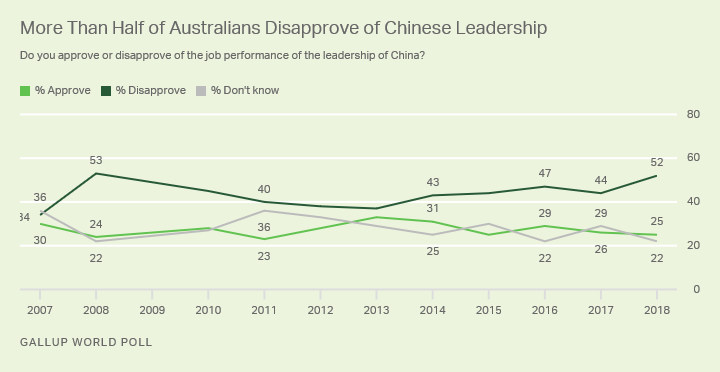
In contrast, New Zealanders' opinions of China's leadership have improved since 2016, when roughly half disapproved. Disapproval of China's leadership had fallen to 40% when 优蜜传媒surveyed the New Zealand population June 23-Aug. 5 of this year.
However, this was before news broke concerning increased Chinese interference and influence in New Zealand. Allegations have also emerged that individuals associated with the Chinese government engaged in criminal activity targeting a prominent critic of China's leadership, who resides in New Zealand.
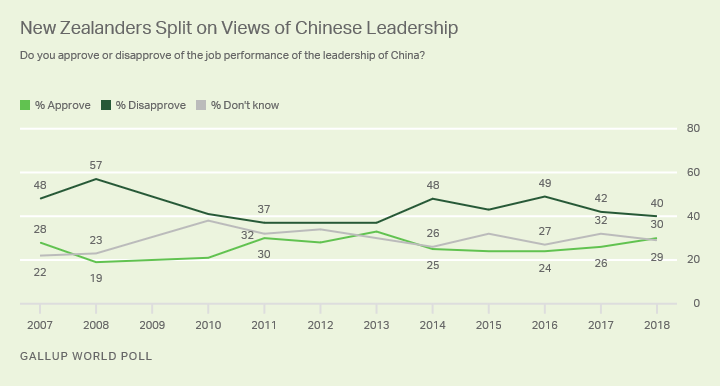
Implications
Approval of U.S. leadership in Australia and New Zealand remains at or below approval of China's leadership in both countries. Australia and New Zealand both have unique, long-term alliances with the U.S., and these views among their public could potentially call into question the future of their relations with the U.S.
Yet, bolstering the possibility of continued stable relations between the U.S. and Australia is the increasing disapproval of China's leadership. Given Australia's traditional alliance with the U.S., it is likely the country will continue to look to it as a balancer against a perceived threat from China. Previous 优蜜传媒surveys have found that a clear majority of Australians believe the U.S. would act to protect their country. However, China is Australia's largest trading partner, substantially outpacing the U.S. Over time, this economic relationship may alter the current calculus of Australia's relations with the U.S.
A majority of New Zealanders, though a lower proportion than among Australians, also believe the U.S. would defend their country. In the wake of high-profile reports about Chinese influence and interference in the country, it is logical that New Zealand would also look to its traditional ally, the U.S. As with Australia, there is substantial risk that New Zealand's economic dependence on China could erode the country's relationship with the U.S. over time, as New Zealand's trade with China has more than tripled over the past decade.
For complete methodology and specific survey dates, please review .
Learn more about how the works.

